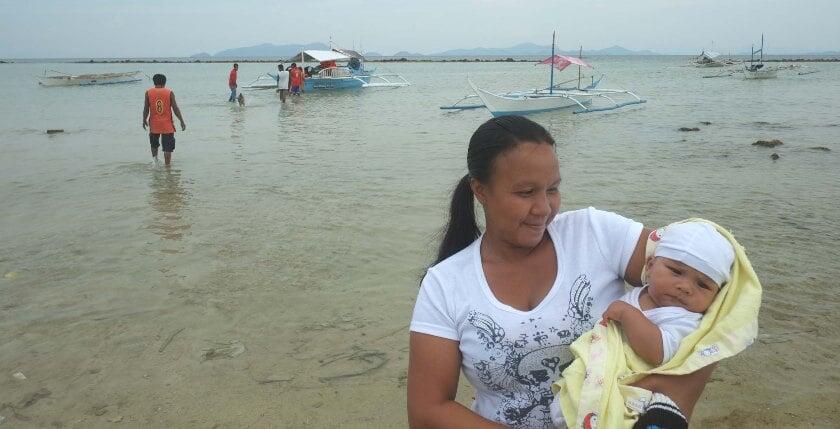TACLOBAN, Philippines – One year has passed since Typhoon Haiyan, one of the strongest storms ever recorded, struck the Philippines on November 8, 2013, and devastated the lives of millions.
UNFPA has been working on the front lines supporting women, girls and young people affected by the disaster, providing them with life-saving reproductive health care and safe spaces to help rebuild their lives.
These photos capture moments and portraits of the people who with courage and resilience are rebuilding the hardest-hit areas in the country.
Approximately 250,000 pregnant women were affected by Typhoon Haiyan. One year on, UNFPA continues to deliver life-saving reproductive health services to isolated communities affected by the disaster. These communities, like the one here on Gigantes Island off the province of Iloilo, still have only limited access to health services. UNFPA and partners have been dispatching reproductive health medical missions to provide them with free maternal and newborn care.
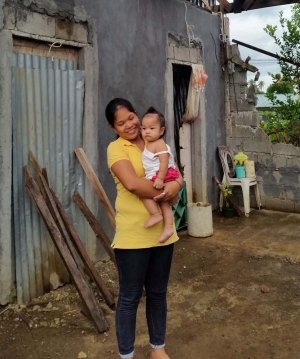
Vivian was the first mother to deliver at the Emergency Maternity Unit in Palo, Leyte Province, when it opened on December 31 last year.
Today, Vivian Aplaca’s home looks much the same as it did after the typhoon hit. Even though her house barely survived the storm, everyone in her family did.
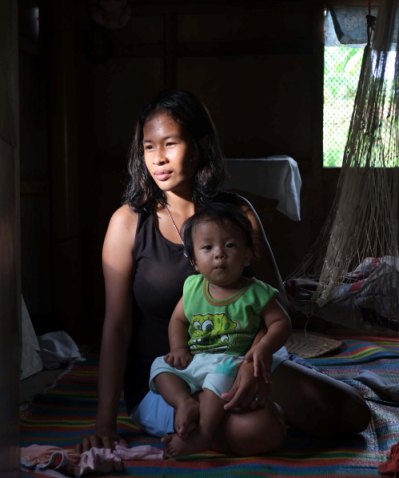
Gladys Libira was seven months pregnant when Typhoon Haiyan hit. She almost died trying to escape the gigantic waves brought on by the storm.
On the morning of January 1, 2014, Gladys gave birth to a baby boy in the Emergency Maternity Unit set up by UNFPA in Palo, Leyte province. After most of the birthing centres in the province were destroyed by the storm, the facility provided a safe and clean space for deliveries, including C-sections. Gladys named her son Niño.
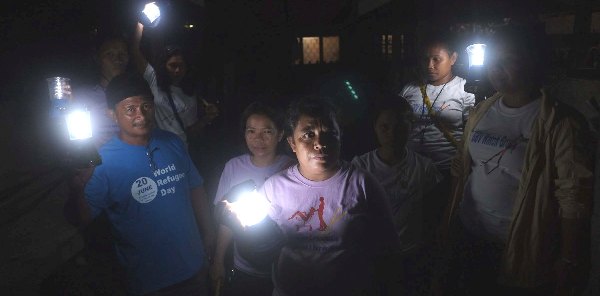
In Tacloban City, a Night Watch Group conducts foot patrols in the city’s bunkhouse community.
It is estimated that Typhoon Haiyan affected approximately 14 million people. Today, thousands still live in tents, bunkhouses and temporary shelters. Women and girls displaced from their homes during humanitarian crises are particularly vulnerable to sexual and gender-based violence and to trafficking. To address and prevent these risks, UNFPA helps to organize groups of women and men from affected communities to patrol their localities.
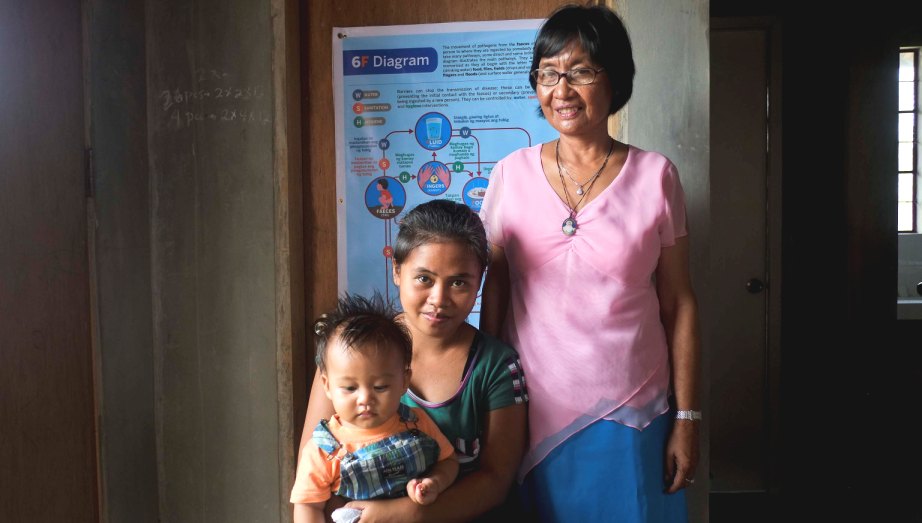
When the Felipe Abrigo Memorial Hospital in Guiuan, Eastern Samar province, was destroyed by the typhoon, hospital chief Lilia Daguinod decided to move patients to her home. Two women gave birth there.
“On the third day, with support from UNFPA, we were able to set up a medical tent to ensure safe deliveries despite the situation,” Dr. Daguinod recalls. Here, Dr. Daguinod poses with one of the women who gave birth in the maternity tent by her house.
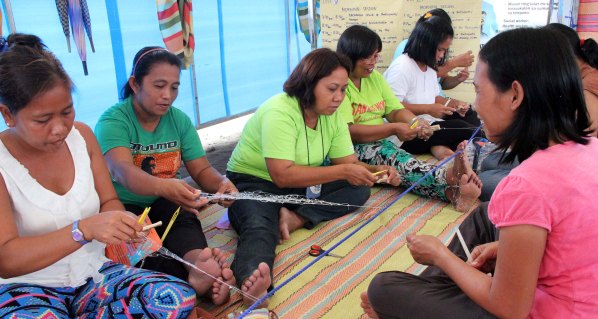
UNFPA estimates that approximately 3.5 million women of child-bearing age were at increased risk of sexual and gender-based violence as law and order broke down after Typhoon Haiyan. Recognizing their special needs, UNFPA and its partners set up 'Women Friendly Spaces' in evacuation centres and communities across affected areas. These spaces provide a safe haven to raise awareness about gender-based violence as well as access to psychological, legal and health services. They also provide skills training for survivors to help them improve livelihood opportunities.
In the past year, more than 100,000 people attended UNFPA-supported sessions focused on raising awareness about gender-based violence. In addition, 2,400 service providers were oriented on handling gender-based violence cases during emergencies.
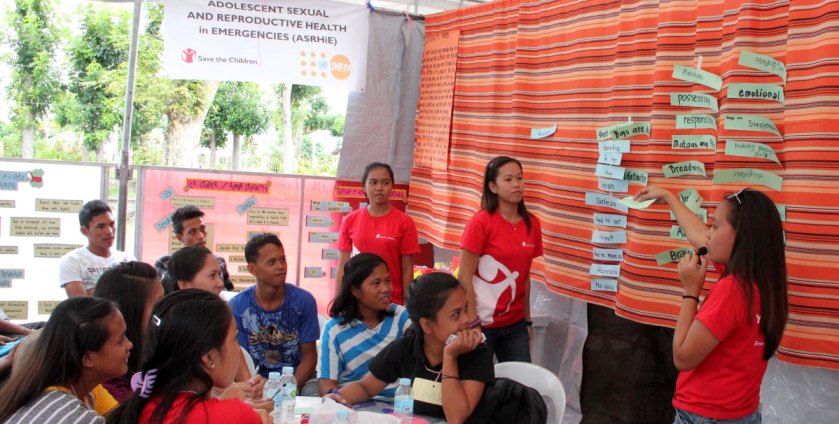
In the aftermath of the storm, UNFPA paid special attention to the needs of young people affected by the disaster. With their direct involvement and the help of local partners, UNFPA set up 'Youth Friendly Spaces' that offer peer education training for volunteers, as well as various activities for local youth, including information sessions about life skills and responsible sexual behaviour.
More than 20,000 young people across hard-hit areas have attended UNFPA-supported health information sessions.
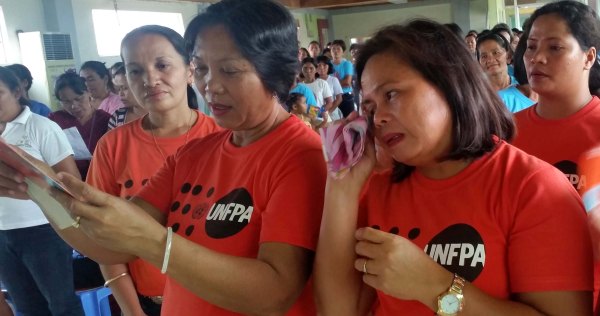
Marilou Bacale tears up during the graduation ceremony for participants in a livelihood training organized by UNFPA and partners at a Women Friendly Space in the Alangalang municipality in Leyte province. Herself a Haiyan survivor, Marilou is now a volunteer at the centre, a programme she credits with changing her life.
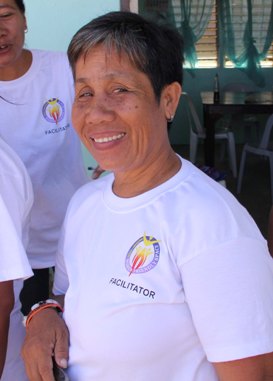
Melchorita Belarde is a breast cancer survivor. Her family was hit hard by the typhoon but she is staying positive.
Melchorita has committed herself to helping the women in her community to recover from the disaster by volunteering as one of the facilitators at a UNFPA-supported Women Friendly Space in Barangay Cawayan, in the province of Iloilo.
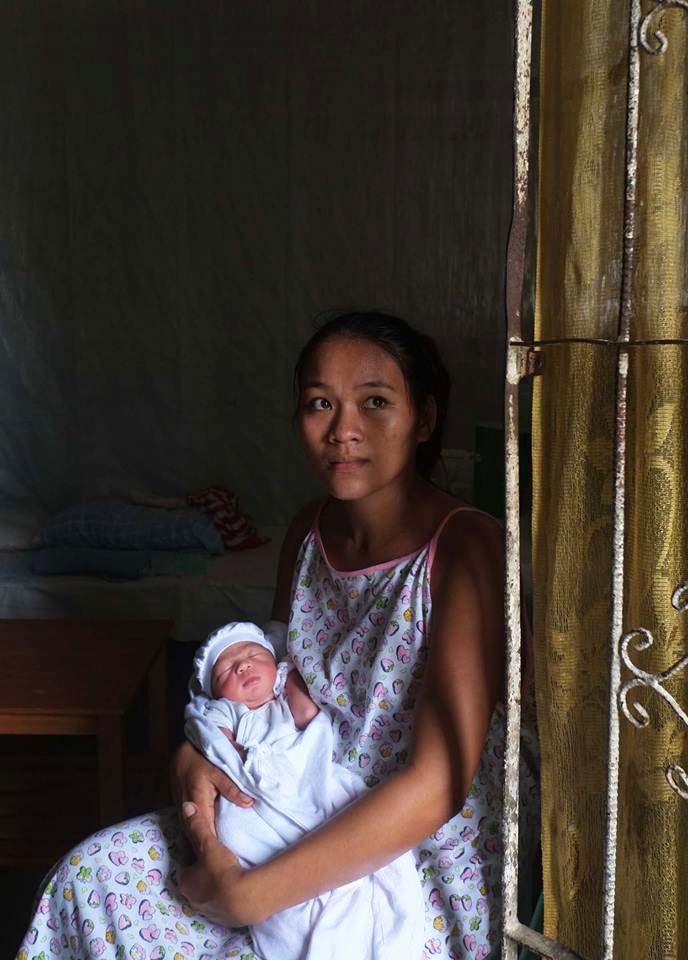
Christine Bingco lost her six-month old son when he was swept away by Typhoon Haiyan on November 8, 2013.
One year later, Christine holds a new baby in her arms. She gave birth in a clinic in Palo, Leyte province, which was supported by UNFPA who provided medicines and supplies in the aftermath of the storm.
“It is still very difficult to move on from the tragedy especially because we lost our baby. But somehow we are surviving and now we are blessed with another baby boy,” Christine said.
All photo credits: UNFPA Philippines

